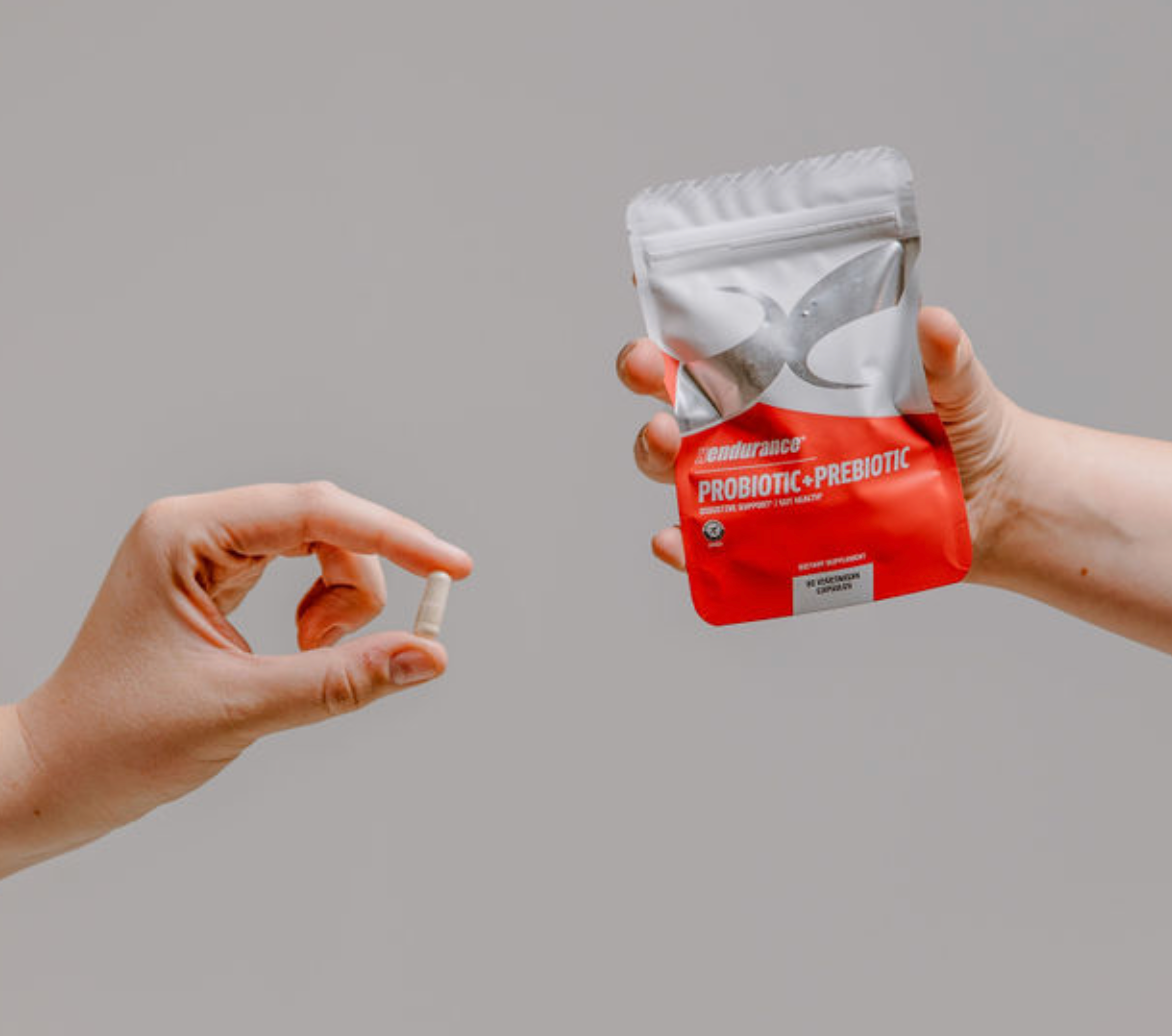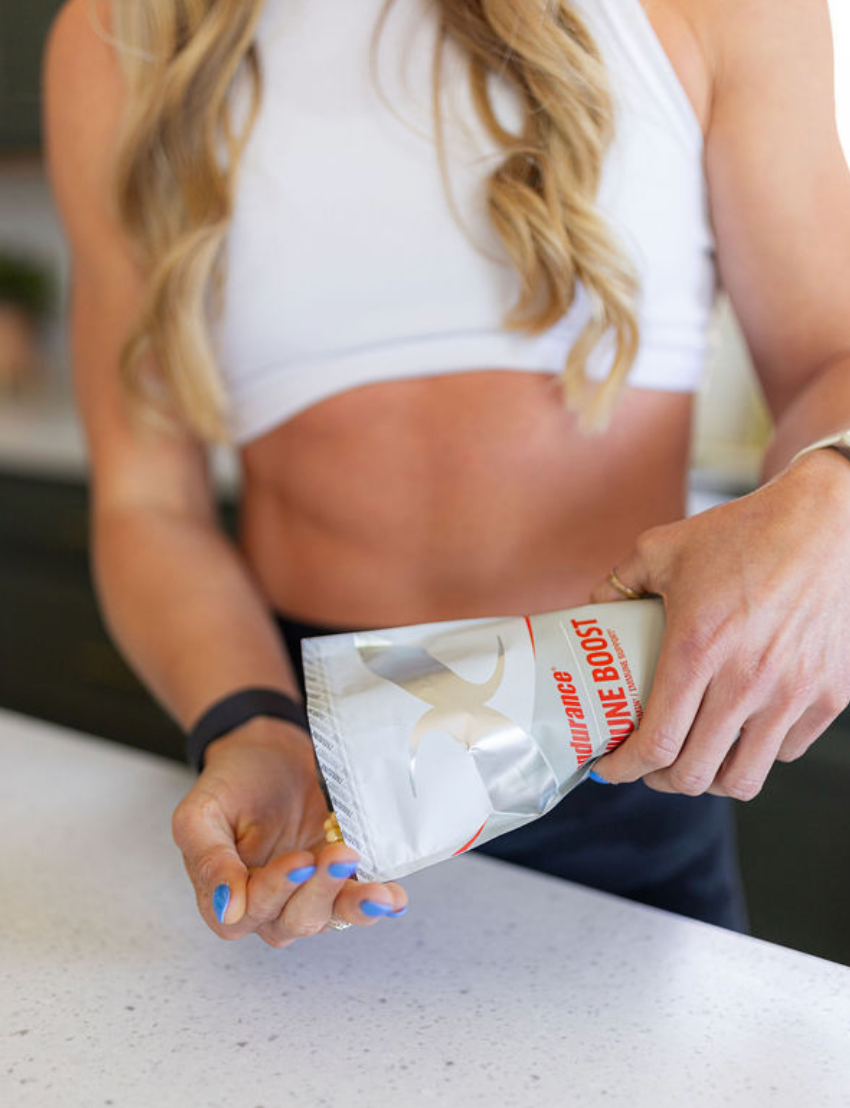Probiotics have surged in popularity over the last few years, becoming a staple in the wellness routines of many. With a growing body of research supporting their benefits, understanding what makes a good probiotic is crucial for anyone looking to optimize their gut health. This article will delve into the various factors that contribute to an effective probiotic, including the number and types of strains, colony-forming units (CFUs), the importance of prebiotics, and the reasons for taking probiotics.
Understanding Probiotics
Think of probiotics as “Good Bacteria”.
Probiotics are live microorganisms that, when consumed in adequate amounts, confer a health benefit on the host. These beneficial bacteria are primarily found in fermented foods and dietary supplements. They play a crucial role in maintaining the balance of the gut microbiome, which is essential for overall health and well-being.
Number and Types of Strains
A good probiotic supplement typically contains multiple strains of bacteria. Each strain has unique properties and benefits, and a diverse mix can provide a broader range of health benefits. The most commonly used and researched probiotic strains belong to the Lactobacillus and Bifidobacterium genera.
- Lactobacillus: This genus is known for its role in fermenting carbohydrates into lactic acid, which helps maintain an acidic environment in the gut. Strains like Lactobacillus acidophilus and Lactobacillus rhamnosus are renowned for their ability to support digestion and boost the immune system.
- Bifidobacterium: This genus is predominantly found in the colon and plays a vital role in breaking down complex carbohydrates, fats, and proteins. Bifidobacterium longum and Bifidobacterium bifidum are popular strains that help reduce gastrointestinal discomfort and enhance nutrient absorption.
In addition to these, other beneficial strains include Saccharomyces boulardii (a beneficial yeast), Streptococcus thermophilus, and Bacillus coagulans. A high-quality probiotic will often contain a combination of these strains to address various aspects of gut health.
Colony-Forming Units (CFUs)
The potency of a probiotic is measured in colony-forming units (CFUs), which indicate the number of viable bacteria in the supplement. The effectiveness of a probiotic depends on delivering an adequate number of these live microorganisms to the gut. Generally, a good probiotic supplement should contain at least 10 billion CFUs per serving.
Research suggests that different health conditions may require different CFU counts. For instance, general gut health and maintenance may benefit from a lower CFU count (around 1-10 billion), while specific conditions like irritable bowel syndrome (IBS) or antibiotic-associated diarrhea may require higher doses (20-50 billion or more).
Survival Through the Digestive Tract
One of the challenges with probiotics is ensuring that they survive the acidic environment of the stomach and reach the intestines alive. Probiotics must be formulated to withstand stomach acid and bile. This can be achieved through enteric-coated capsules or other advanced delivery systems that protect the bacteria until they reach the intestines.
Can You Get Probiotics Through Food Sources?
Yes, you can get probiotics from various food sources. Many fermented foods naturally contain beneficial bacteria that can contribute to gut health. Here are a few common probiotic-rich foods:
1. Yogurt
Yogurt is one of the most well-known sources of probiotics. It is made by fermenting milk with bacterial cultures, typically Lactobacillus and Bifidobacterium strains. When choosing yogurt, look for labels that mention "live and active cultures" to ensure it contains probiotics.
2. Kefir
Kefir is a fermented milk drink that is similar to yogurt but has a thinner consistency and a tangier taste. It contains a diverse array of bacteria and yeast, making it a potent probiotic source.
3. Sauerkraut
Sauerkraut is fermented cabbage. It is rich in Lactobacillus bacteria and can be a great addition to your diet. To get the probiotic benefits, choose unpasteurized sauerkraut, as pasteurization kills the beneficial bacteria.
4. Kimchi
Kimchi is a traditional Korean dish made from fermented vegetables, primarily cabbage and radishes, with a variety of seasonings. It is rich in Lactobacillus and other beneficial bacteria, contributing to its probiotic content.
5. Kombucha
Kombucha is a fermented tea drink that has become quite popular in recent years. It is made by fermenting sweetened tea with a symbiotic culture of bacteria and yeast (SCOBY). Kombucha contains various strains of beneficial bacteria and yeast.
Incorporating these probiotic-rich foods into your diet can help support a healthy gut microbiome. These foods not only provide beneficial bacteria but also come with other nutritional benefits, making them an excellent addition to a balanced diet.

The Role of Prebiotics
Prebiotics are non-digestible fibers that serve as food for probiotics. They promote the growth and activity of beneficial bacteria in the gut. Combining prebiotics with probiotics (a synbiotic approach) can enhance the effectiveness of the probiotic supplement. Common prebiotics include inulin, fructooligosaccharides (FOS), and galactooligosaccharides (GOS).
Prebiotics are essential because they help maintain a favorable environment for probiotics to thrive. They can be found naturally in foods such as bananas, onions, garlic, leeks, asparagus, and whole grains.
Reasons to Take Probiotics
People take probiotics for various reasons, backed by scientific research and anecdotal evidence. Here are some of the key benefits:
- Digestive Health: Probiotics can help maintain a healthy balance of gut bacteria, which is crucial for proper digestion and nutrient absorption. They are often used to manage conditions like IBS, inflammatory bowel disease (IBD), and diarrhea caused by infections or antibiotics.
- Immune Support: A significant portion of the immune system resides in the gut. Probiotics can enhance immune function by promoting the production of natural antibodies and stimulating immune cells like T lymphocytes and macrophages.
- Mental Health: Emerging research suggests a strong connection between gut health and mental well-being, often referred to as the gut-brain axis. Probiotics may help alleviate symptoms of anxiety, depression, and stress by influencing the production of neurotransmitters and reducing inflammation.
- Skin Health: Certain probiotic strains can improve skin conditions like acne, eczema, and rosacea. They do this by reducing inflammation and balancing the gut microbiome, which can have systemic effects on the skin.
- Weight Management: Probiotics may assist in weight loss and weight management by influencing the metabolism and reducing fat storage. Some strains, like Lactobacillus gasseri, have been linked to reductions in belly fat.
- Allergy Relief: Probiotics can modulate immune responses and may help alleviate symptoms of allergies, such as hay fever and eczema, particularly in children.
- Urinary and Vaginal Health: For women, probiotics can help maintain a healthy balance of bacteria in the urinary tract and vagina, reducing the risk of infections such as urinary tract infections (UTIs) and bacterial vaginosis.
Choosing the Right Probiotic
When selecting a probiotic, consider the following factors:
- Strain Specificity: Look for products that list the specific strains used, as different strains have different benefits.
- CFU Count: Choose a product with an adequate CFU count based on your health needs.
- Survivability: Opt for probiotics that use advanced delivery systems to ensure the bacteria survive stomach acid and reach the intestines.
- Prebiotics: Consider synbiotic supplements that include prebiotics to support the growth and activity of probiotics.
- Storage: Check whether the probiotic requires refrigeration or is shelf-stable, as proper storage can affect the viability of the bacteria.
Newsworthy Information on Probiotics
Recent advancements in probiotic research have highlighted several exciting developments:
- Personalized Probiotics: Scientists are working on developing personalized probiotics tailored to an individual's unique gut microbiome. This approach aims to provide more effective and targeted health benefits.
- Probiotics and COVID-19: Research is ongoing to explore the potential role of probiotics in supporting immune function during viral infections, including COVID-19. While it's too early to draw definitive conclusions, some studies suggest that probiotics may help enhance immune responses.
- Postbiotics: Beyond probiotics, postbiotics (metabolic byproducts of probiotics) are gaining attention for their health benefits. These compounds can exert beneficial effects even after the probiotic bacteria have died, offering a new dimension to gut health supplements.
- Regulation and Quality Control: The probiotic industry is moving towards stricter regulations and quality control measures to ensure the safety and efficacy of products. This is crucial for building consumer trust and ensuring that probiotic supplements deliver on their promises.
Final Thoughts: Choosing and Using Probiotics Wisely
Probiotics play a vital role in supporting gut health and overall well-being. When choosing a probiotic, it's essential to consider the number and types of strains, CFU count, survivability through the digestive tract, and the inclusion of prebiotics. With the right probiotic supplement, individuals can experience a wide range of health benefits, from improved digestion and immune function to enhanced mental health and skin condition. As research continues to evolve, probiotics are likely to become an even more integral part of our approach to health and wellness.









コメントを書く
このサイトはhCaptchaによって保護されており、hCaptchaプライバシーポリシーおよび利用規約が適用されます。